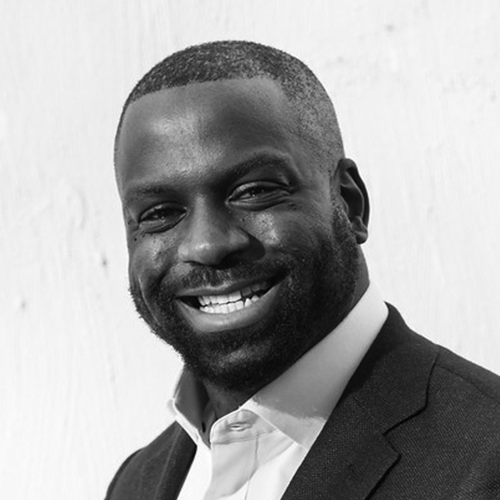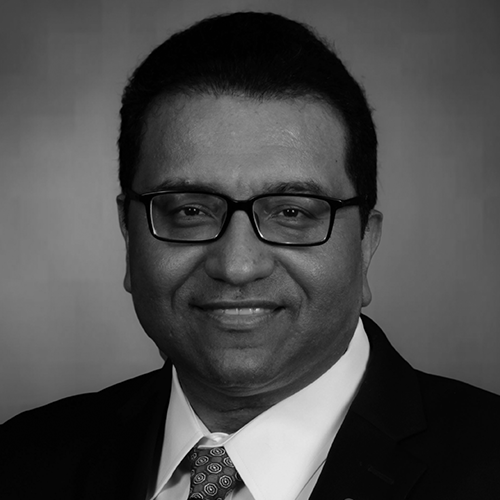Financial wellness is top of mind for everyone right now. We asked our panel of experts for advice and tips on how to achieve it.

Bradley Leimer
Co-Founder, Unconventional Ventures
What is your top piece of advice for Americans who have had their short- and long-term financial plans derailed by the pandemic and its impact on the economy?
Never give up hope that the future will be better than today. While there are plenty of systemic reasons why there are individual and community financial challenges and economic gaps – even beyond this pandemic – our legacy of limited financial solutions to help more people attain financial security is changing.
What advice can you offer people who are looking to improve their financial literacy?
Talk to as many people as you can about their work and what they do, how they became successful, and latch on to the type of work that resonates most with your passion and your purpose. Get involved in your community – both virtual and in person – and learn from everyone around you.
What would you say is one often-overlooked component of a good financial plan?
It is said that time is money, but the time that we have is worth more than that – it’s everything we have. No matter what you do in this life, make sure it has meaning for you.

Marc Russell
Founder, BetterWallet, LLC
What is your top piece of advice for Americans who have had their short- and long-term financial plans derailed by the pandemic and its impact on the economy?
My biggest piece of advice is to recalibrate your short- and long-term goals and look at them through what I call the “happiness lens:” What goals make you the happiest? After assessing these goals, try your best to achieve them!
What advice can you offer people who are looking to improve their financial literacy?
Some of us weren’t taught financial literacy through our upbringing. It’s on us to learn about finance and unlearn bad financial habits. If you’re ready to learn, you must start by being intentional with your time.
What would you say is one often-overlooked component of a good financial plan?
People truly underestimate the importance of having a complete budget. Most people have a list of bills, and that’s far from a budget.
What if businesses only accounted for their bills (taxes, electricity, and employer salaries), but didn’t account for all the miscellaneous costs of running a business (delivery/shipping expenses, advertising, fluctuating inventory expenses)? They’d be in serious financial trouble, right? Apply that to your life.

Ravi Kumar
Head of CIT Direct Bank
What is your top piece of advice for Americans who have had their short- and long-term financial plans derailed by the pandemic and its impact on the economy?
It’s no secret that the pandemic caused changes in spending and savings habits for most Americans. A key piece of advice for consumers to get back on track with their short- and long-term financial plans is to create or replenish their emergency savings fund, and ensure they are financially prepared for the unexpected.
What advice can you offer people who are looking to improve their financial literacy?
It is never too early to start learning about finances. Regardless of the time in your life that you decide to commit to financial education, it instills healthy savings habits for years to come. My top piece of advice is to start off small.
What would you say is one often-overlooked component of a good financial plan?
Automated savings, while it can often seem like a smaller component of a financial plan is integral to making the process of saving more manageable.

Katie Perry
General Manager of IR Innovation, Public.com
What is your top piece of advice for Americans who have had their short- and long-term financial plans derailed by the pandemic and its impact on the economy?
Investing became truly mainstream after decades of being seen as an activity for an elite few. Americans can learn improve their understanding of how our financial systems work and how macroeconomic events like the pandemic impact our portfolios and our wallets.
What advice can you offer people who are looking to improve their financial literacy?
A big myth when it comes to financial literacy is that you either have it or don’t. Truth is, financial literacy is a skill, and people at all levels of understanding can benefit from building habits that build their knowledge over time.
What would you say is one often-overlooked component of a good financial plan?
You can’t improve what you don’t measure. Sometimes in our excitement about building a financial plan or getting started investing, it can be easy to jump right to the tactics. Before asking, “What should I have in my portfolio?” ask yourself, “What are my goals one, five, and ten years down the line?” Take stock of your own financial health, and from there, set goals into the future.

